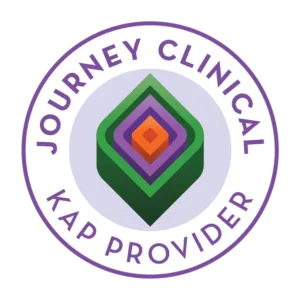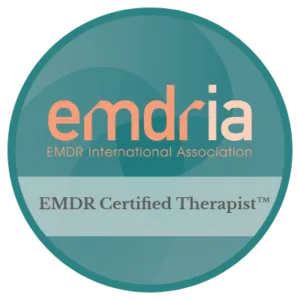Key Takeaways: Top 10 Signs Drinking Has Become A Problem
Many men are at risk of developing problematic drinking patterns. Unsure if your drinking habits are cause for concern? Look out for these warning signs that indicate alcohol consumption may have crossed the line. From neglecting responsibilities to experiencing frequent blackouts, these red flags can signal an unhealthy relationship with alcohol. Curious to see if any of these signs resonate with you or someone you know. If you are finding that drinking has become a problem there is support and treatment available.
Some men may use alcohol or substances as an (unhealthy) way to cope with stress, anxiety, male depression or PTSD/trauma. Coping with alcohol will make mental health symptoms worse.
Ready to uncover the top indicators that drinking has become problematic? Scroll down for reviews of our top picks!
Key Takeaways
Recognize Increased Tolerance: If you find yourself needing more alcohol to feel the same effects, it could be a sign of a drinking problem. Consider seeking help or support.
Address Neglecting Responsibilities: When alcohol consumption starts interfering with your duties at work, school, or home, it’s time to reassess your relationship with drinking and prioritize responsibilities.
Acknowledge Withdrawal Symptoms: Experiencing physical or emotional distress when not drinking may indicate dependence. Consulting a healthcare professional or therapist can provide guidance on managing withdrawal.
Address Relationship Issues: Alcohol abuse can strain relationships with loved ones due to drinking. Seeking counseling or therapy can help repair these relationships and address the underlying issues.
Seek Help for Legal Problems: Legal troubles due to alcohol-related incidents should not be ignored. Legal counsel or support groups can assist in navigating these challenges and preventing future issues.
Prioritize Health: Recognize the signs of health deterioration caused by excessive drinking and take steps to prioritize your well-being. Consult a healthcare provider for guidance on improving your health.
1. Increased tolerance
Increased tolerance is a key indicator that drinking may have become problematic. This occurs when individuals need more alcohol to achieve the same effects as before. As tolerance builds, previous amounts of alcohol no longer produce the desired impact, leading to a cycle of consuming larger quantities without feeling significantly impaired.
This escalating pattern can signal the development of alcohol dependence, especially in adults who experience these changes over time. Recognizing and addressing this early on is crucial to prevent further escalation and potential harm. Seeking proper treatment and support is essential for individuals experiencing this symptom of problematic drinking.
2. Neglecting responsibilities
When drinking starts leading to missed work deadlines or forgotten tasks, it’s a clear sign of neglecting responsibilities. Prioritizing alcohol over children or professional duties can indicate a serious problem. Arriving late or skipping obligations due to drinking showcases a lack of commitment and focus. It’s essential to address these behaviors promptly to prevent further consequences in personal and professional life. Seeking help from support groups or professional counseling can aid in overcoming this harmful pattern.
3. Withdrawal symptoms
Experiencing shakes or tremors when attempting to cut down on alcohol can be a sign of withdrawal symptoms. These physical manifestations can include feeling nauseous, sweating, or having headaches when not consuming alcohol. Individuals may encounter challenges such as trouble sleeping or experiencing anxiety during periods of abstinence. These symptoms often indicate a dependence on alcohol and the body’s reaction when it is deprived of its regular intake. Seeking professional help and support is crucial in managing these withdrawal signs effectively.
4. Relationship issues
Arguing frequently with loved ones about drinking habits can be a clear sign that alcohol consumption is causing strain on relationships. This constant conflict can lead to emotional distress and impact the well-being of all involved.
Feeling distant or disconnected from family and friends due to alcohol use is another red flag. When alcohol becomes a priority over relationships, it can result in isolation and loneliness, affecting one’s support system.
Not being able to maintain healthy relationships because of drinking behaviors indicates a deeper issue. Alcohol-induced actions may harm interactions with loved ones, leading to misunderstandings, conflicts, and ultimately, damaged relationships.
Addressing these relationship issues caused by excessive drinking is crucial for both the individual’s well-being and the harmony within their social circles. Seeking help and support can pave the way towards healthier connections and a more fulfilling life.
5. Legal problems
Experiencing legal issues due to alcohol consumption can be a clear sign that drinking has become a problem. This may manifest in various ways, such as facing charges for public intoxication or disorderly conduct. Individuals might find themselves in trouble with the law, particularly for offenses like driving under the influence. These situations often lead to serious consequences like fines, court appearances, and even potential legal repercussions that can impact one’s life significantly.
Dealing with legal ramifications because of alcohol-related incidents is not only stressful but also highlights the severity of the situation. It serves as a wake-up call to address the underlying issue of excessive drinking before it escalates further.
6. Blackouts
Blackouts are a concerning sign that drinking has become problematic. These episodes involve memory lapses or gaps in recollection after consuming alcohol, leading to waking up without remembering events from the previous night. Individuals experiencing alcohol-induced blackouts may find themselves in dangerous situations without any recollection of how they got there. This loss of memory can have severe consequences on one’s safety and well-being.
Studies have shown that frequent blackouts due to heavy drinking can indicate an increased risk of developing alcohol use disorder (AUD) and other serious health issues. According to the National Institute on Alcohol Abuse and Alcoholism (NIAAA), repeated blackouts may signify an unhealthy relationship with alcohol, requiring intervention and support to prevent further harm.
If you or someone you know is experiencing blackouts related to alcohol consumption, seeking professional help and guidance is crucial in addressing this issue effectively.
7. Health deterioration
Developing chronic conditions like high blood pressure or heart disease can be a direct result of excessive drinking. Experiencing liver damage and other physical health issues are common signs that alcohol consumption has become a problem. This deterioration in health can lead to a significant decline in overall well-being and vitality, impacting one’s quality of life at home and beyond.
Alcohol-related health problems not only affect the body but also have detrimental effects on mental health and social interactions. Seeking help early on is crucial to prevent further health complications and improve overall wellness.
8. Failed attempts to stop
Struggling to cut back on drinking despite multiple efforts can be a significant red flag indicating that alcohol consumption has become problematic. Individuals experiencing failed attempts to stop often find themselves in a cycle of making promises to quit but struggling to follow through. Seeking help to address the issue is crucial, yet many may find themselves relapsing shortly after receiving support.
This pattern of unsuccessful cessation attempts can lead to feelings of frustration and shame, further complicating the already challenging journey towards sobriety. It is essential for individuals facing this challenge to seek professional guidance and support to break free from the cycle of failed attempts and achieve lasting recovery.
9. Hiding drinking habits
Concealing the amount or frequency of alcohol consumption is a common behavior among many alcoholics. This includes drinking in secret or alone to avoid judgment or scrutiny. Individuals may go to great lengths to hide evidence of their drinks, such as empty bottles or cans, in an attempt to keep their excessive drinking hidden from others.
Hiding drinking habits can indicate a deeper issue with alcohol dependency and addiction. It often signifies a sense of shame or guilt associated with one’s drinking behavior. Seeking help and support is crucial for individuals who find themselves resorting to secretive drinking patterns.
If you or someone you know exhibits signs of hiding drinking habits, it’s essential to address the underlying causes and seek professional assistance to overcome alcohol misuse.
10. Continued use despite consequences
Persisting in alcohol consumption despite adverse effects on physical, mental, or social well-being is a clear indicator that drinking has become problematic. Individuals facing negative consequences such as health issues, relationship problems, or work-related issues but continue to drink are displaying a concerning behavior pattern. Ignoring warnings from loved ones about the impact of alcohol on one’s life can lead to isolation and further complications.
This sign often signifies a deeper issue with alcohol dependency that requires attention and intervention. According to the National Institute on Alcohol Abuse and Alcoholism (NIAAA), this behavior can escalate into severe alcohol use disorder if left unaddressed. Seeking professional help and support from addiction specialists or support groups is crucial in addressing this harmful cycle.
Continuing to drink despite experiencing negative repercussions can have detrimental long-term effects on both physical health and overall well-being. It is essential to recognize these signs early on to prevent further harm.
Closing Thoughts
Reflect on the signs we’ve discussed. If you see these in yourself or someone close, it might be time to seek help. Don’t wait until things spiral out of control. Your well-being is crucial, and addressing these issues early can make a significant difference in your life.
Take action today. Reach out to a professional, confide in a friend, or explore support groups. Remember, you’re not alone in this journey towards a healthier lifestyle. Embrace the opportunity for change and growth. Your future self will thank you for taking the first step towards a better tomorrow.
Frequently Asked Questions
What are some signs of alcohol dependency?
Increased tolerance, withdrawal symptoms, failed attempts to stop, and continued use despite consequences are common signs of alcohol dependency.
How can I identify if my drinking habits are becoming problematic?
Look out for neglecting responsibilities, relationship issues, legal problems, blackouts, health deterioration, and hiding drinking habits as signs of problematic drinking.
Why is it important to recognize signs that drinking has become a problem?
Recognizing these signs early can lead to seeking help and preventing further negative consequences associated with alcohol abuse.
Where can I seek help if I suspect my drinking has become a problem?
Consulting a healthcare professional or reaching out to support groups like Alcoholics Anonymous can provide guidance and support in addressing alcohol-related issues.
Can someone overcome alcohol dependency on their own?
While some individuals may be able to make changes independently, seeking professional help and support often leads to more successful outcomes in overcoming alcohol dependency.














